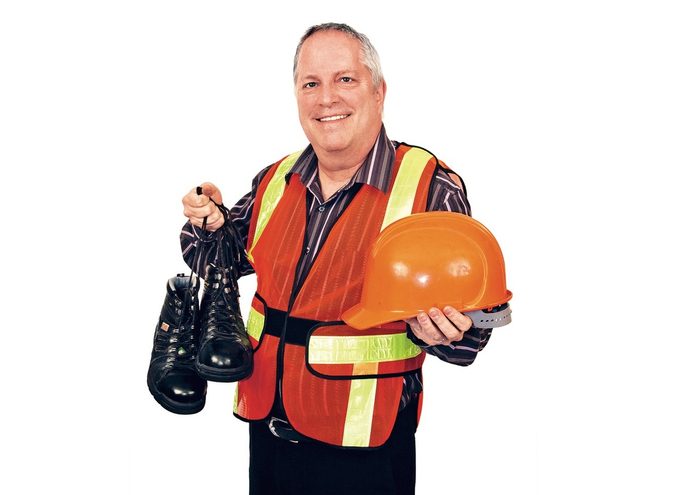Great Canadians: Working Gear
Stephen Flynn helps low-income men dress for the jobs they want.
 In 2007, Stephen Flynn uncovered a dilemma. Through his job at a Vancouver employment service centre, he knew low-income men moving back into the workforce needed clothes for job interviews and construction sites. He was also aware they couldn’t afford to buy a suit or work boots without a source of income. Non-profits like Dress for Success were helping women prep for the office, but organizations providing a similar service to men were rare.
In 2007, Stephen Flynn uncovered a dilemma. Through his job at a Vancouver employment service centre, he knew low-income men moving back into the workforce needed clothes for job interviews and construction sites. He was also aware they couldn’t afford to buy a suit or work boots without a source of income. Non-profits like Dress for Success were helping women prep for the office, but organizations providing a similar service to men were rare.
“So why don’t you set one up?” a colleague challenged him. “If I do, will you help me?” Flynn asked.
Within six months, Flynn, then 46, and a coalition of staffers from employment agencies across the city had started Working Gear. Originally run out of a cramped storage room, the charity supplies clients with professional attire, whether the men are headed to an office or a building site. Now based in East Vancouver, Working Gear’s spacious headquarters are packed with racks of clothing, shelves of boots and a change area: “We want our customers to feel like this is a store and they’re here to shop,” says Flynn.
The men who come to Working Gear for appointments – often nervous about getting suited up and reluctant to take too many items-must be referred by job counsellors at agencies like the Open Door Group. That’s where program and financial-support specialist Launa Gallant assists residents of Vancouver’s Downtown Eastside, a neighbourhood with an unemployment rate of more than 11 per cent, about twice the overall rate of the rest of the city. During the course of a year, she sends approximately 100 men to the charity for outfits that will make a good first impression on employers and boost the job seekers’ confidence levels. “By a conservative estimate, the new clothes improve our clients’ chances of securing employment by more than 80 per cent,” says Gallant.
For Andrew Fredericks, 30, the referral to Working Gear came from staff at the halfway house where he lived after being released from prison. In 2012, for an interview as a door-to-door marketer, he picked out a slim-fit grey suit, shirt and tie. He left feeling “super happy-I didn’t know I would be that comfortable or could look that good in a suit.”
Though he didn’t get the marketing job, Fredericks returned to Working Gear as a volunteer; three years later, he’s a restaurant owner and yoga teacher. “There should be more of these places around,” he says.
Open six hours a week, Working Gear serves approximately 800 men annually-and a few women who need construction duds. With Vancouver building sites running year-round, there’s work for skilled labourers, but positions in warehouses, landscaping and on sites require applicants to wear steel-toed boots, even when dropping off a resumé. The cost-$100 to $200 per pair-can be prohibitive for the unemployed. Boot drives pull in hundreds of used but useful work boots donated by large companies or members of border services, who receive new steel-toed footwear each year. Safety gear, such as reflective vests, goggles, gloves and hard hats, is provided by the government body WorkSafeBC, while many of the suits come from Moores, which runs an annual campaign to collect lightly used professional clothing from its customers.
The satisfaction of meeting a clear need keeps Flynn-who now assists elderly clients at British Columbia’s Public Trustee office-involved in Working Gear, both on the board of directors and as a volunteer in the shop. “When they see that person in the mirror, when they hear from us how good they look,” he says, “they really can visualize themselves at the meeting or on the job site.” Wearing their new clothes, the men stand tall, smile and walk out into the world.



